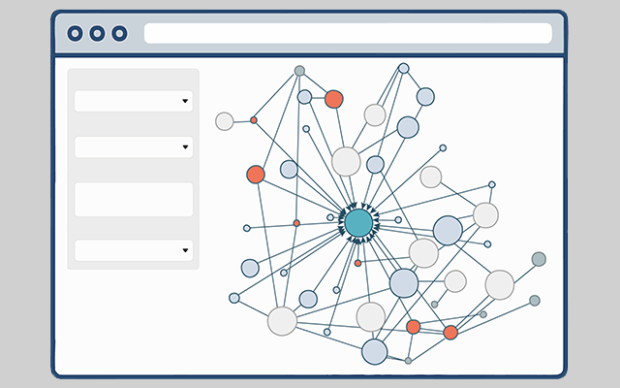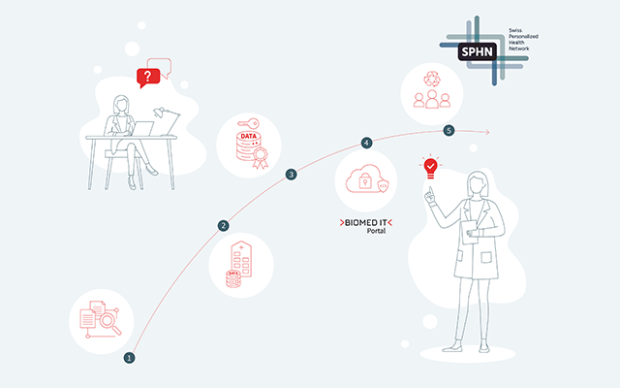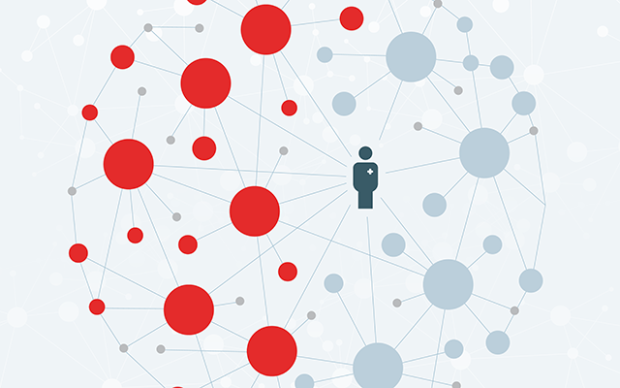An understudied type of genetic variants typically associated with rare and debilitating conditions have now been shown to also shape risk for more common diseases in the general population. The study, led by the teams of Alexandre Reymond and SIB Group Leader Zoltán Kutalik both at the University of Lausanne, aimed to better understand the class of genetic variants, known as copy-number variants (CNVs). These results, now published in Genome Medicine, hold promise for further developing personalized medicine.
In previous work, this team of scientists had studied the presence of CNVs (see box) in 500,000 individuals from the UK Biobank, a large cohort of individuals from the general population for which genetic data are available. “This study showed that CNVs are commonly found in the general population and affect traits with potential medical relevance,” indicates Alexandre Reymond from the Center for Integrative Genetics at UNIL. “This led us to the next important question: what if these mutations have a role in susceptibility to more common diseases?”.
An underrecognized class of genetic mutations
Copy-number variants (CNVs) are a type of underrecognized genetic mutations, where an individual has either more or less than two copies of a given DNA fragment, in which case we refer to them as duplications and deletions, specifically. Historically CNVs have been studied in clinical cohorts of individuals suffering from what we call “genomic disorders”. These are typically characterized by severe clinical symptoms with childhood onset, such as neurodevelopmental delay, physical malformations, or conditions such as autism.
Novel statistical approach reveals links between CNVs and common diseases
“To address this challenging question, we needed to develop a specific analysis framework to gauge confidence of the discovered associations between CNVs and diseases”, says Zoltán Kutalik, SIB’s Statistical Genetics Group Leader at the University of Lausanne. Indeed, the discrete nature of diseases compared to continuous traits such as height for example, and the relative rarity of the CNVs in the Biobank’s healthy population meant the scientists had to tailor existing statistical approaches to support their results.
The researchers found 73 links between CNVs and diseases, involving 45 unique genomic regions and 40 common diseases such as asthma, epilepsy, renal insufficiency, or cardiac disorders. Besides increasing disease risk, these mutations also lead to an earlier age at disease onset. For instance, deletions in the BRCA1 gene were found to lead to an increased risk for ovarian cancer, in line with genetic alterations in this gene representing one of the strongest risk factors for breast and ovarian cancer.
A single CNV can increase the risk of multiple conditions
The scientists also studied another phenomenon known as pleiotropy. This is when a particular genetic variant affects the risk for multiple diseases. This has been observed for many CNVs, especially ones linked to genomic disorders. One CNV, known as 16p11.2 BP4-5, was shown to affect the risk of 15 different disorders. Interestingly, the risk for disease was generally driven by the deletion of the region. However, for psychiatric conditions such as schizophrenia, depression, and bipolar disorder, the increased risk was driven by the duplication of the region. Because the 16p11.2 BP-4-5 deletion also leads to severe obesity, which represents a risk factor for many diseases, one hypothesis was that these associations were a consequence of the increased weight of these individuals. “We found that about half of the associations could be explained by the effect of the CNV on the weight of the individual. However, this was not the case for the psychiatric, renal, and pulmonary diseases, indicating that alternative mechanisms are at play”, says Chiara Auwerx, PhD student in the groups of Zoltán Kutalik and Alexandre Reymond, and the first author of the article.
A potential avenue for personalized medicine
Since the analyzed CNVs are quite rare, the fraction of disease that can be attributed to them is low. It is estimated that about 0.02% of all disease cases are caused by CNVs, with a slightly higher percentage for diseases such as schizophrenia, for which CNVs are an important risk factor. However, for a single individual, the presence of a CNV can have important consequences, as they do increase disease risk by several orders of magnitude and have much more severe consequences than other more common types of genetic variants. “These findings have important consequences for personalized medicine since identifying individuals possessing these variants can ensure that they are provided with tailored prevention and treatment strategies,” Zoltán Kutalik comments.
Reference(s)
Auwerx C et al. Rare copy-number variants as modulators of common disease susceptibility. Genome medicine 2024.










